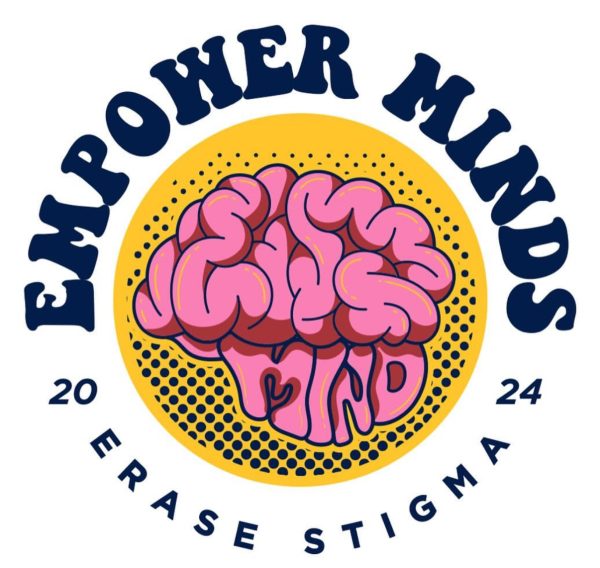Ghettolisten
I’ll go ahead and give credit where credit is due- my interest in the country of Denmark was almost completely spawned by a mixture of a Simpsons episode, a pre-existing fascination with Vikings and Danish military history, and admiration for the culture and language. Really, a libertarian and miser such as myself had no actual business paying any more attention to the socialist speck below Norway than needed.
Still, though, I glanced through articles detailing the exploits of LEGO and the royals and soccer stars, looking at what a neat little place it was. The language caught my attention more than anything- as is often the case with me- and I amused myself with trying to imitate the peculiarities of Danish consonants and varied vowels, so different from the more widely spoken Germanic languages. The country had history, culture, and a million more little fun tidbits to pique my curiosity.
The violent part of the country’s history was mostly gone after a loss to Prussia and Austria sometime in the 1800’s, Denmark finally pursuing a stance of neutrality as they became industrialized. They continued holding onto this during the first World War. This was not to remain, however, due to a German invasion during World War II. Denmark’s surrender was nearly immediate, saving lives but sacrificing core values. The battle lasted a mere six hours and was only part of the greater plan to invade Norway (who held out until two months later, but eventually surrendered to Nazi Germany as well.) The Royal Danish army was pieced apart, with only a 3,300 member “Life Guard” unit left for the country.
The underground Danish Resistance quietly developed in the months afterwards, the less bold Scandinavian equivalent of la Resistenza, or the (mainly southern) Italian resistance movement that eventually paved the way for Allied forces to land in Italy. The Danish Resistance famously escorted Jews out of Nazi-controlled Denmark and to neutral Sweden, saving them from deportation to Nazi concentration camps.
This is a piece of history, the resistance to Nazi occupation, that many Danish citizens take great pride in. It was something to prove to themselves that they were not like several European countries who complied with handing over Jewish citizens to a regime whose goal was genocide. Only 500 people out of Denmark’s 7,000 to 8,000 strong Jewish population were not rescued and provided with asylum in Sweden in time.
Ghetto was the term used to describe the segregated Jewish neighborhoods of Europe during World War II, created by the Nazis to separate Jewish citizens and citizens of Jewish descent from their Aryan counterparts. These were then turned into concentration and death camps for those very same citizens. The word has since developed into a slang word for neighborhoods that are below the standards of those surrounding them, or those with high ratios of ethnic minorities.
The connotation in any instance is certainly a negative one and a reminder of the atrocities committed against the Jewish people. No country before has used the word formally because of the undercurrent it carries- ties to the inhumane and horrifying attempted genocide that occurred in the second World War.
Except, apparently, Denmark.
The ghettolisten– Danish for “ghetto list”- is a complete list of areas that the government has proclaimed not to be up to the standards of Denmark, and this list was recently publicized. These areas are made up mostly by first-and-second-generation Muslim immigrants (“ghetto parents” and “ghetto children,” respectively,) An entire array of ridiculous laws come with this title, including required daycare for 25 hours a week starting at one teaching preschoolers “Danish values,” such as Christmas, Easter, and language tests. By the way, the toddlers can fail these tests.
Keep in mind that “non-western immigrant” children- Muslim children- are the ones that need this attention from the government. Danish children and the children of “western immigrants” are hardly ever taken away for these special classes.
If nothing else, this is an invasion of home life, where the government shouldn’t be in the first place.
There are more laws targeting these ghettos, including double sentences for crimes that happen in these areas, welfare restrictions for these citizens, and public warnings about these areas- some of which are considered by the standards of most to be perfectly nice areas.
Denmark’s church and state have been intertwined for as far back as either held power, and eighty percent of the current population belongs to the state-supported Church of Denmark. In Denmark’s Constitution of 1849- the one King Frederick VII signed to keep the kingdom together- Section 4 declares the Church of Denmark to be the official church. However, Section 67 allows for freedom of religion within the bounds of public order and good morals, and Section 70 guarantees rights will not be taken away from individuals based on race or religion.
Denmark hasn’t stopped there, though. If “integration” wasn’t happening fast enough for the government, it seems they’ve responded by taking it a step further in banning the burqa, a garment worn by some Muslim women covering their face and body. This garment is currently banned in Austria, Belgium, Bulgaria, Cameroon, Chad, Republic of The Congo, China, Denmark, France, Gabon, Latvia, Morocco, and Tajikistan.
The plan is to enforce this new law of theirs with fines. The first woman received hers back in August, a 1,000 kroner fine for complying with her closely held religious beliefs. What caused police to arrive on the scene in the first place? Someone tried to rip her niqab off.
Any material that covers the face is now considered to be illegal- “anyone who wears a garment that hides the face in public will be punished with a fine.” It was specifically stated that this was not targeted at religious groups. Their evidence for that was mostly that fake beards and ski masks are also forbidden. However, Halloween costumes, winter gear, and helmets are all still fine. Odd.
What kind of government should have the power to tell someone that they must change to conform with everyone else? What kind of government should have the power to ask people to try to be more like them? To ban their religious garments and force their children into what is practically another religious upbringing? To tell them that they have disgraced where they live enough to warn the public about it? To slap the label “ghettos” on their communities?
Maybe this decision isn’t something to be proud of.
The reasoning behind this has varied from country to country: Denmark claims the clothing is “oppressive,” China believes the ban will limit “religious extremism,” and France’s law was upheld in court on the grounds that “living together” is the French authority’s “legitimate aim.” Yes, “living together” is now something you may use in court as an excuse to tell women how to dress.
Many supporters of this push against the burqa cite concerns about the loss of western culture due to immigrant influence. Others back the idea that the burqa is a symbol of oppression, and thus should be gotten rid of for the benefit of Muslim women.
These arguments, however, are beside the point- when the government of any modern country limits some religions without evidence of actual harm, it is not a precaution. The governments of Denmark, China, and France are acting out of fear, hatred, and disdain for their Muslim populations. There’s actually a word for that. Islamophobia.
Suggestions from supporters of the laws are odd and poorly thought out a good deal of the time.
Don’t like the laws? Move to somewhere that lets you wear your burqa! An immigrant escaping war, poverty, or prosecution will go where they are accepted and safe- they don’t usually have a say in where they end up. Besides that, laws that target the minority are an issue.
Get over yourself and conform to western culture. We’d dress like everyone else if we were in the Middle East. The point of being a modern society is that it doesn’t prosecute people who act differently and aren’t hurting anyone. The idea of bringing up non acceptance from others and using it to justify your own discrimination is petty.
They’re oppressive. In countries such as the more developed ones listed earlier, nobody is making these women wear them. They do it freely and by choice- telling them what they can’t and can wear is oppression.
Recently, an EU funded report branded this Scandinavian nation as “Islamophobic.” The foreign minister at the time, Jeppe Kofod, stated that he was “really angry.” We know his judgement is quite good, as last time he had a foreign policy position, he was forced to resign after having sex with a fifteen year old.
Is the EU right? Is this what Denmark has come to?
Forming government-endorsed ghettos is shameful.
Your donation will support the student journalists of The Woodlands High School. Your contribution will allow us to purchase equipment and cover our annual website hosting costs.







Kev-gang Doughnut Glue • Apr 6, 2020 at 3:33 pm
Really amazing story. Very disappointing to hear about this! 🙁
T. Swart • Apr 1, 2020 at 10:03 am
Wow! So many facts I didn’t know. I really enjoyed the way you contrasted the impact of the Danish Resistance movement with current Danish laws.